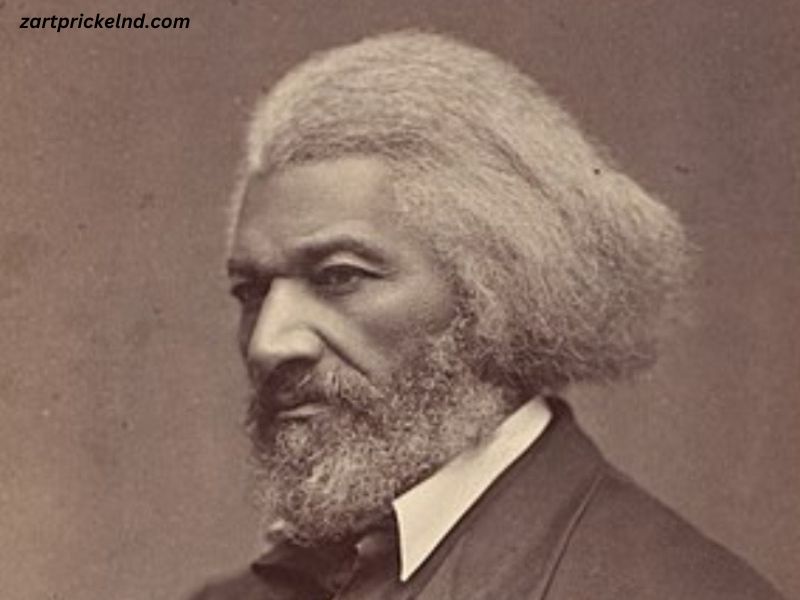The phrase “Power concedes nothing without an organized demand” is often attributed to the great abolitionist and civil rights activist Frederick Douglass. Douglass, a former enslaved person who became a key figure in the fight for freedom and equality in 19th-century America, spoke this truth at a time when the nation was embroiled in deep racial and political conflicts. Over the years, this powerful statement has transcended its original context to become a universal call to action for oppressed groups everywhere. At its core, it speaks to the fundamental reality of power dynamics in society: those in positions of authority will not willingly give up their privileges or resources unless forced to do so by a unified, collective effort.
Understanding the Meaning of “Power Concedes Nothing Without an Organized Demand”
The essence of Douglass’s statement lies in the recognition of the inherent resistance of those who hold power to change. Historically, powerful institutions, whether governmental, economic, or social, tend to maintain their status quo as long as they can. Change often occurs only when people come together in a united effort to demand it. This principle applies across various fields, from politics and civil rights to labor movements and social justice causes.
When Douglass made this assertion, he was addressing the systemic oppression of African Americans, particularly the struggle to end slavery. However, his words resonate today in various global struggles for social, political, and economic justice. The idea behind “organized demand” is particularly significant: power doesn’t simply concede because it is asked or because of good intentions; it requires pressure. This pressure comes from people organizing, speaking with one voice, and demanding change with the force of collective will.
The Historical Context: Frederick Douglass and the Abolitionist Movement
Douglass’s call for organized demand can best be understood through the lens of his life’s work as an abolitionist. Born into slavery in 1818, Douglass experienced firsthand the brutality of the institution. After escaping to the North, he became one of the most influential advocates for abolition. Douglass was not just a powerful orator and writer; he was a tireless advocate for the organized, collective action that would ultimately bring an end to slavery in the United States.
The abolitionist movement in the 19th century was characterized by its push for the systematic and widespread demand for the emancipation of enslaved individuals. It was not a movement born out of simple moral persuasion. Instead, it involved the creation of organized networks of activists, thinkers, and abolitionists working together to apply political, social, and economic pressure on those in power. Douglass and his fellow abolitionists realized that without such an organized demand, those in power would continue to uphold the institution of slavery.
Douglass famously argued that African Americans had to assert their right to freedom through direct action, rather than wait for the benevolence of their oppressors. His phrase, “Power concedes nothing without a demand,” was a clear call to action for those who sought equality, justice, and freedom. It was not enough for abolitionists to simply advocate for the end of slavery; they needed to organize and mobilize the masses to demand change.
The Role of Organizing in Social Movements
Douglass’s words have become a rallying cry for various social movements throughout history. The Civil Rights Movement in the United States, for example, owes much of its success to the efforts of organizers like Martin Luther King Jr., Rosa Parks, and others who understood that change required more than just appealing to the conscience of lawmakers. They knew that the establishment would only grant rights when those being denied those rights came together and demanded them.
In the 1960s, the Civil Rights Movement orchestrated massive protests, sit-ins, boycotts, and other forms of direct action to challenge segregation and discriminatory practices. This movement didn’t just rely on rhetoric; it relied on sustained, organized efforts that pressured the government, corporations, and society to change.
Similarly, other global struggles have echoed Douglass’s call for organized demand. The labor movements of the late 19th and early 20th centuries, led by figures like Eugene V. Debs and other union organizers, showed that workers could demand fair wages, safer working conditions, and better treatment only by coming together in solidarity. The demand for labor rights often met with resistance from powerful industrialists and government entities, but through organized strikes and mass mobilization, workers were able to force the concession of their demands.
From the feminist movements to LGBTQ+ rights campaigns, the principle that power concedes nothing without an organized demand remains true. These movements achieved progress not through passive requests but by organizing rallies, petitions, protests, and strikes that forced society to confront issues of gender inequality, discrimination, and violence. Each of these struggles had to contend with entrenched power structures, but each also recognized that meaningful change only happens when power is confronted head-on.
The Power of Collective Action: Examples from History
The success of organized movements throughout history highlights the significance of collective action in challenging power. Douglass’s statement isn’t just an observation; it’s a roadmap for achieving social change. Let’s look at a few key examples:
- The Civil Rights Movement (1950s-1960s)
As mentioned earlier, the Civil Rights Movement is a clear example of how power concedes nothing without organized demand. Leaders like Martin Luther King Jr. and Malcolm X emphasized that the struggle for equality would not be won through passive acceptance or moral appeals alone. The movement’s success was fueled by mass marches (such as the March on Washington), nonviolent protests, and legal battles (such as the landmark Brown v. Board of Education case). The movement forced the U.S. government to pass legislation such as the Civil Rights Act of 1964 and the Voting Rights Act of 1965.
- The Women’s Suffrage Movement (Late 19th-Early 20th Century)
For decades, women in the United States and around the world fought for the right to vote. Their struggle was met with resistance from those in power, who believed that granting women the right to vote would undermine societal norms. It wasn’t until suffragists organized protests, hunger strikes, and marches that their demand for the vote could not be ignored. The culmination of their organized efforts resulted in the passage of the 19th Amendment to the U.S. Constitution in 1920, which granted women the right to vote.
- Labor Movements and Unionization (19th-20th Century)
The labor movement is another example of the power of collective action. During the Industrial Revolution, workers faced harsh conditions, long hours, and low wages. They began organizing into unions to demand better conditions. The labor movement faced fierce opposition from industrialists and governments, but through strikes, protests, and organized demands, workers were able to secure better wages, safer working environments, and the right to unionize.
- The LGBTQ+ Rights Movement (1960s-Present)
The LGBTQ+ rights movement is yet another example of the truth behind Douglass’s words. Throughout history, LGBTQ+ individuals have faced discrimination, marginalization, and violence. It wasn’t until LGBTQ+ activists began organizing in earnest—through Pride marches, legal battles, and public demonstrations—that society began to recognize their rights. Landmark moments such as the Stonewall Riots of 1969 and the legalization of same-sex marriage in many countries are testament to the power of organized demand.
The Modern Relevance of Organized Demand
In today’s world, Douglass’s words continue to be a guiding principle for social justice movements around the globe. From climate change activism led by figures like Greta Thunberg to movements like Black Lives Matter, the truth that power concedes nothing without an organized demand remains as relevant as ever.
In the digital age, organizing has taken on new forms. Social media platforms, for example, have become powerful tools for activists to mobilize support and apply pressure on governments, corporations, and institutions. Online petitions, viral campaigns, and digital protests are now part of the modern landscape of organizing. Yet the core message remains the same: change is not handed down from those in power; it is demanded by those who have the courage to organize and speak out.
Conclusion
Frederick Douglass’s statement, “Power concedes nothing without an organized demand,” encapsulates a timeless truth about the nature of power and social change. Throughout history, from the abolition of slavery to the modern-day struggles for civil rights, workers’ rights, and gender equality, the demand for justice has always been met with resistance from those in power. But through collective action, organized movements, and the relentless pursuit of change, progress has been achieved.
As we move forward in today’s world, Douglass’s call to action continues to inspire and guide us. Whether we are fighting for climate justice, racial equality, or workers’ rights, we must remember that power will not grant us our demands unless we come together, organize, and make our voices heard. Only then will power concede.



